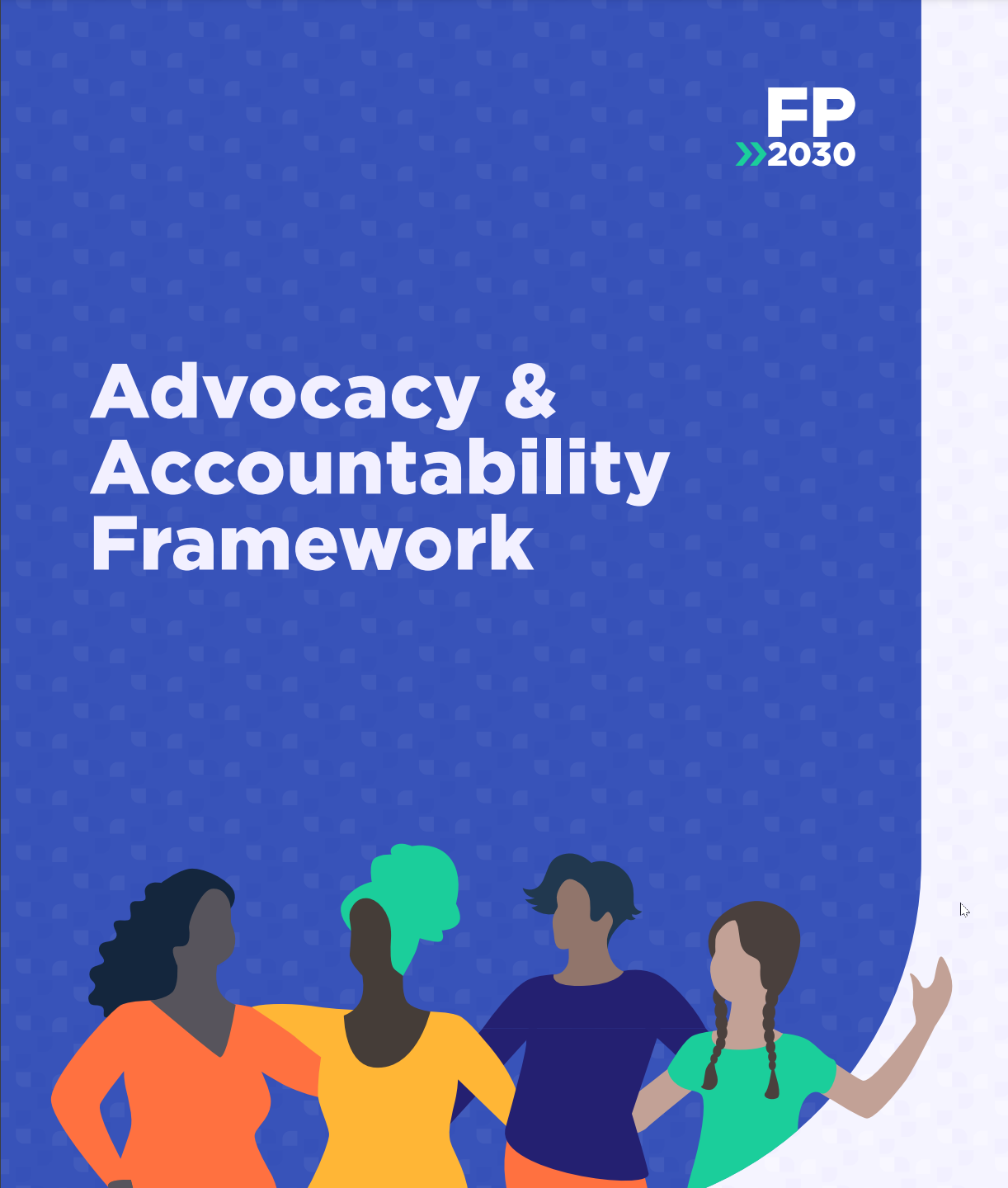Article by Angeline Ngina Mutunga, Global Health Visions
FP2030 has just released an Advocacy and Accountability Framework, a document meant to help civil society partners, youth partners, and other stakeholders form their own advocacy and accountability strategies as part of their FP2030 commitments. Angeline Ngina Mutunga, Global Health Visions, explains how she hopes this document is used to form advocacy and accountability strategies in varying country contexts.
At the turn of the decade, a review of FP2020’s work showed that while many of the FP2020 country commitments led to policy and budget changes for family planning, accountability challenges persisted. Policies were not fully implemented and budgets remained undisbursed, while civil society remained on the sidelines of the accountability conversation. Moving forward, sustained advocacy and accountability will be required to secure the gains made and accelerate further progress. As the partnership was reformed for the next decade, it was clear we needed a better framework to include advocacy and accountability in the agenda.
I’m pleased to have collaborated with colleagues at Advance Family Planning and FP2030 to develop the FP2030 Advocacy and Accountability Framework, a conceptual guide that outlines the role of advocacy and accountability in the FP2030 movement.
The framework makes recommendations about how advocacy and accountability strategies can be delivered, strengthened, funded, coordinated, and evaluated. In this framework, advocacy is primed as the engine that will drive progress to achieving the partnership’s goals. Through evidence-based advocacy, the case for family planning will be made — compellingly and consistently — at the country, regional, and global levels. At the same time, accountability will be the backbone to ensure that pledges made by governments and other commitment makers are honored and met. Accountability will also ensure that laws, policies, and programs are implemented, and that services are provided to fulfill the needs and rights of intended beneficiaries.
The framework underscores the importance of civil society in driving the twin processes at all levels. Thus, it institutionalizes a process for cultivating strong civil society coalitions, strengthening the capacity of civil society and youth advocates; articulates the investments needed for a strong and sustainable civil society ecosystem; and fosters the use of data and evidence for advocacy and accountability.
Among many other strategies, the framework offers guidance on alignment and coordination. Family planning is a multifaceted health and development issue, closely linked with various policies, strategies, processes, and frameworks. Alignment among these silos will ensure that stakeholders understand that prioritizing family planning will contribute to the overall human development and achievements of subnational, national, regional, and international health and development objectives. Alignment will also enable cross-sector linkages for improved prioritization and increased investment for family planning.
Family planning partners represent a diverse group of stakeholders, requiring coordination and alignment mechanisms at all levels. Such mechanisms will enhance coherence; promote equality, strategic partnerships, and alliances; and strengthen stakeholder accountability for results and synergies. In the framework, we identify stakeholders at the county, regional, and global levels and clarify the role that each stakeholder can play.
We hope this framework is a useful tool for global advocates to form their own strategies and make the case for family planning in their countries. Now, let’s get to work!
